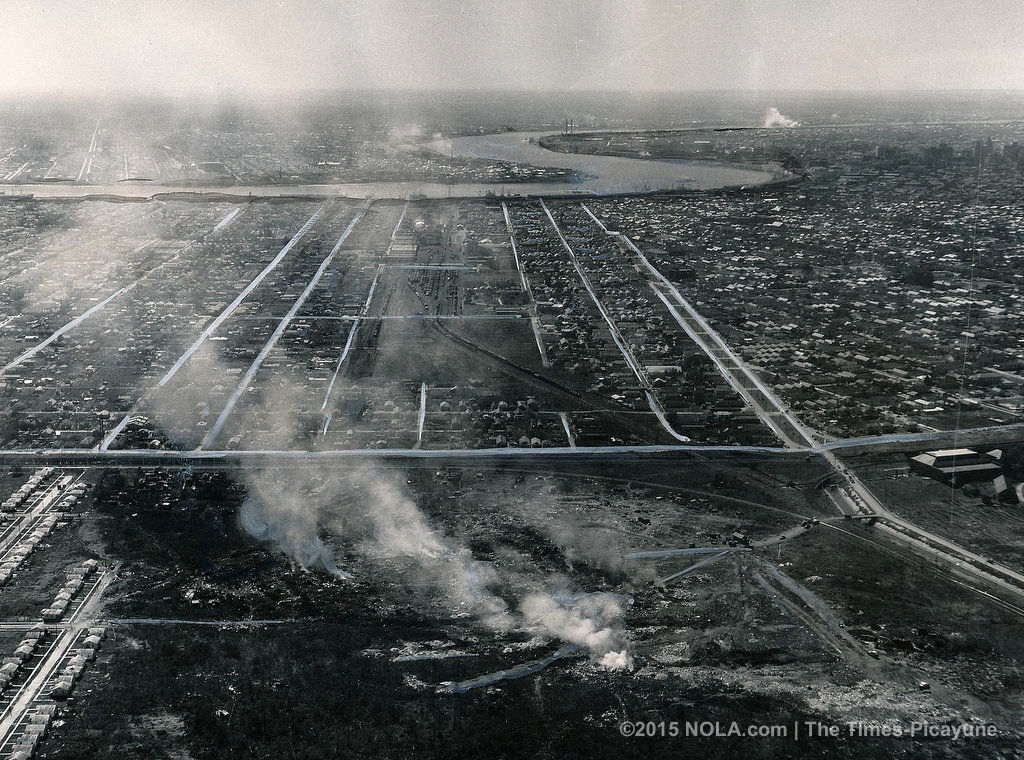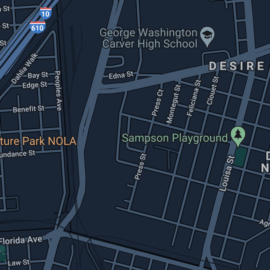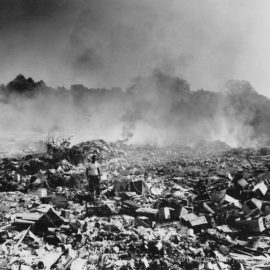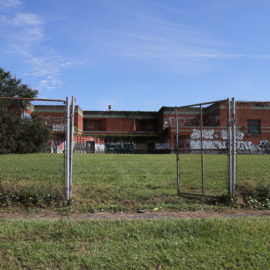
The smoke is where Gordon Plaza was built. It was a land fill, a toxic one, and recently a strong force was built to remove those living there and the city has responded, or have they?
In the waning moments of a nine-hour meeting, the last session of their term, New Orleans City Council members on Thursday earmarked $35 million in the capital budget toward moving Gordon Plaza residents out of a subdivision built atop a toxic landfill. Supporters said the pledge shows the council’s fiscal commitment to the Gordon Plaza initiative. Skeptics called it a symbolic gesture that offers little meaningful relief to the residents. The vote came after residents attended almost every council meeting during budget season, pushing for a specific line item in the 2022 budget to demonstrate City Hall’s dedication to their decades-old cause. Mayor LaToya Cantrell’s administration had repeatedly stated her support for residents’ relocation, but neighborhood leaders were disappointed when they saw that her 2022 budget proposal contained no mention of Gordon Plaza. Instead, administration officials said they planned to spend about $2 million to hire an outside firm to assess the land and plan relocations. To residents, this seemed meager compared to the $35 million they estimated it would cost to buy them out and move them elsewhere. They requested that much money in the budget and a timeline for spending it.
nola.com
Built over a land fill. Shades of Love Canal for those who remember this super site.
Constructed atop the 95-acre Agriculture Street Landfill in 1981, the Gordon Plaza subdivision was billed as a way to expand affordable housing options in New Orleans and was marketed toward Black residents looking to buy houses. The buyers were unaware until 1994 that the ground was laced with more than 50 hazardous compounds such as arsenic and lead, caused by five decades of waste disposal there, and have beeseched several administrations to move them away from an environment they say causes cancer. Thursday’s decision resolves just one of those issues. After the council’s 6-1 vote, the $35 million relocation of Gordon Plaza will be added to the city’s five-year capital investment program, which relies in part on money not yet in the bank. Council President Helena Moreno said she hopes the directive brings opposing parties to the table to consider next steps, and affirms to residents that the council was committed to moving them. “If we wait much longer to take drastic steps – I hate to say it, but – the residents might not be around longer to see justice,” Moreno said, acknowledging the neighborhood’s aging population.
It was not a unanimous vote as the off going members wanted to punt the vote to the new council.
Council member Jay Banks voted against the earmark, calling it “kabuki theater.” Banks, along with Cyndi Ngyuen and Kristin Giselson Palmer, who also are leaving the council, pushed to defer the motion and have it considered under the new City Council that takes office next week. That effort failed because it didn’t receive support from at least two thirds of the council. Council member Jared Brossett, whose district includes Gordon Plaza and who also is leaving the council, also voted to defer. While the move will add specific language to the budget, Banks, Palmer and Nguyen said it lacked teeth, and they fretted over giving residents “false hope.” Money has yet to be secured to follow through on the budget line, and a timeline for relocation remains unclear. Palmer and Banks said the administration told them it opposed the $35 million. “I think that the impression that we’re giving people is that this somehow this is going to make the situation go away,” Banks said. “We need to be very clear and explain to folks that this is not the end.” Resident Lydwina Hurst, a member of the nonprofit Residents of Gordon Plaza Inc.’s four-person governing board, said she was happy the subdivision’s cause is now in the budget. But she understood, after the council’s debate, that the long campaign isn’t over. Without a timeline, she said, “It still leaves us hanging. We don’t know what we’re going to do next except that we know we’re going to continue to fight until we actually receive checks to move us out of here.”
Eventually, sometime, maybe the problem will be solved and the residents can move. But this problem keeps on being a problem.



